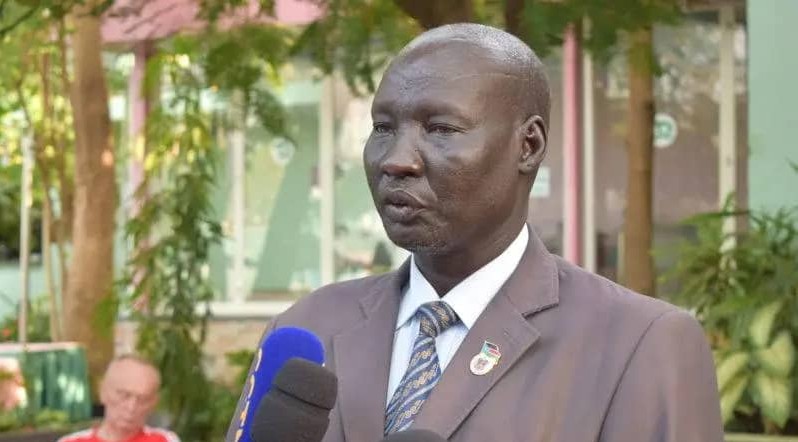
As the water crisis in Juba deepens, leaving residents struggling with exorbitant prices, a Member of the National Legislative Assembly, John Agany is proposing fuel subsidy for water tankers, a move that could cut costs and ensure fair access to clean water across the city.
Agany proposed that a specific petrol station be designated to provide subsidized fuel to water tankers for at least six months, with prices fixed at either SSP 1,500 or 2,000 per barrel.
This measure, he said, would tackle one of the biggest expenses driving up water costs: skyrocketing fuel prices.
The legislator pointed to the Japanese International Cooperation Agency (JICA) water station near the Transitional National Legislative Assembly as a critical but underutilized resource.
“The water provided by the Japanese International Cooperation Association (JICA) near the Transitional National Legislative Assembly can be one of the immediate solutions to the problem of water in Juba city,” Agany stated.
He stated that the facility’s production capacity could adequately cover various zones in Juba, ensuring that residents have access to clean water.
If necessary, government-owned water tankers could help fill any gaps in supply, he added.
In a push to boost local employment, Agany proposed that while the water tanker trucks may be owned by foreign entities, they should be operated by South Sudanese citizens.
“The trucks may be owned by foreigners but driven by South Sudanese citizens. This can also create jobs for our people,” he stated.
Agany pointed out that without the fuel subsidy, the government could implement a pricing system that considers the distance traveled by the water tankers.
“The government can calculate the distance and fix prices according to distances covered by water tanker trucks, from where trucks draw water to the last destinations,” he added.
He noted that this can be put as a temporary solution to the problem of water supply in Juba city.
The water crisis in Juba has become increasingly high, with residents voicing frustrations over exorbitant water prices.
Many are calling for immediate action to alleviate these costs. However, the water tanker association has defended their pricing, citing high fuel expenses and traffic challenges as significant factors.
To streamline delivery, Agany suggested dividing Juba into specific zones, each assigned a set number of water tankers. Prices would then be fixed based on distance traveled.
“These zones are given specific numbers of water tankers, only designated for that zone. The prices are given according to the distances covered by water tanker trucks. And because they are government-owned water tankers, the price per barrel must be sold at a lower price.”
With Agany’s proposal now on the table, all eyes are on policymakers to see if this could be the solution Juba has been waiting for.

